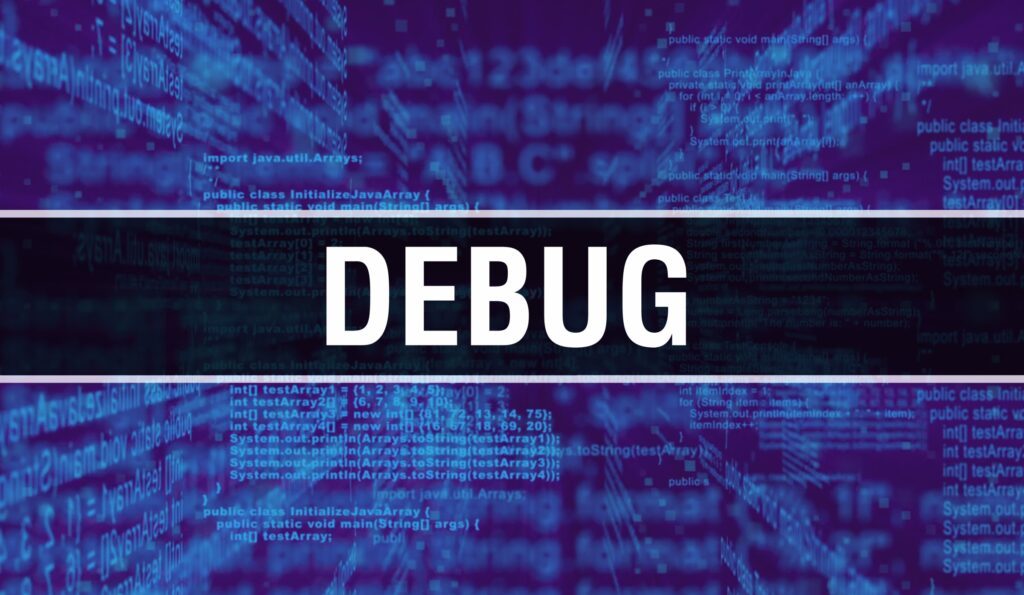What is the Mechanism for Dispute Resolution Regarding Domain Transfer Requests?

In today’s world, where the importance of business activities such as sales and public relations through the internet has increased, it can be troublesome if someone else acquires the domain of your company name or product name.
In response to this, it is possible to counteract with a method called “domain transfer request”. Simply being the first to acquire it does not grant the right to claim ownership of the domain name.
In this article, we will explain about “dispute resolution”, one of the two routes of “domain transfer request”, and examples of lawsuits when there is dissatisfaction with the arbitration result in dispute resolution.
Request for Domain Transfer

There are two routes for requesting the cancellation or transfer of a domain name.
Dispute Resolution
- For JP domain names, you can seek dispute resolution from a dispute resolution organization accredited by JPNIC (Japan Network Information Center), based on the “JP Domain Name Dispute Resolution Policy” established by JPNIC. The complainant can request the cancellation of the registrant’s domain name registration or the transfer of the said domain name registration to the complainant.
- For general domain names, you can seek dispute resolution from a dispute resolution organization accredited by ICANN (Internet Corporation for Assigned Names and Numbers), based on the “Uniform Domain Name Dispute Resolution Policy” established by ICANN. The complainant can request the cancellation of the registrant’s domain name registration or the transfer of the said domain name registration to the complainant.
Litigation
- You can file a lawsuit in court and have it processed based on the Unfair Competition Prevention Act.
Among the “Requests for Domain Transfer”, litigation is explained in another article on our site, “The Relationship between Company Names, Product Names, Trademarks, and Domains”.
https://monolith.law/corporate/domain-trademark-company[ja]
Dispute resolution is simple and does not take much time (up to 57 days at most), but it does not have legal binding power. If a party is dissatisfied with the arbitration result, they can file a lawsuit in the jurisdictional court, so it is not the final decision. So, how is the “cancellation or transfer of a domain name” judged when it actually goes to court?
Registration Transfer of goo Domain Name
goo is a portal site serviced by the NTT Group, and a dispute over the registration transfer of the domain name related to goo was taken to court.
In August 1996, Popcorn Co., Ltd. obtained the registration of the domain name ‘goo.co.jp’ from JPNIC (Japanese Network Information Center). In response, NTT-X (later NTT Resonant) similarly obtained the registration of the domain name ‘goo.ne.jp’ in February 1997.
NTT-X was operating an information search site using the domain name ‘goo.ne.jp’, but the use of the domain name ‘goo.co.jp’ by Popcorn Co., Ltd. was causing source confusion. Based on this and the fact that selecting ‘goo.co.jp’ automatically redirects to an adult site, in November 2000, NTT-X filed a petition with the Industrial Property Rights Arbitration Center (now renamed the ‘Japanese Intellectual Property Arbitration Center’) to request the transfer of the domain name ‘goo.co.jp’ from Popcorn Co., Ltd. to NTT-X. In response, the Center approved NTT-X’s petition in February 2001 and ordered Popcorn Co., Ltd. to transfer the domain name ‘goo.co.jp’ to NTT-X. Dissatisfied with this, Popcorn Co., Ltd. filed a lawsuit with the Tokyo District Court to confirm its right to use the domain name ‘goo.co.jp’.
Disputes over domain names and trademarks can be classified as follows:
Requirements for Domain Name Transfer Requests
The JP-DRP (Japanese Domain Name Dispute Resolution Policy) established by JPNIC stipulates the requirements necessary for requesting a domain name transfer.
- The registrant’s domain name is identical or similar enough to cause confusion with the trademark or other indications in which the claimant has rights or legitimate interests.
- The registrant does not have rights or legitimate interests in the registration of the said domain name.
- The registrant’s domain name is being registered or used for fraudulent purposes.
In this case, whether these three requirements were met or not was the point of contention.
Does NTT-X Have Rights or Legitimate Interests?
Firstly, the issue is whether NTT-X has rights or legitimate interests under Requirement 1. From April to September 2000 alone, NTT-X invested approximately 520 million yen in advertising costs, conducting TV commercials, newspaper advertisements, magazine advertisements, banner advertisements, and events. It was featured in numerous newspapers, magazines, web page articles, email news, and was covered multiple times on TV programs. Furthermore, according to the “Japan Access Rating” survey, an indicator of site access rates on the Internet announced by Japan Research Center, Ltd., the defendant’s site always ranked high. The actual number of page views per day on the defendant’s site exceeded 1 million in the five months since the service started, reaching 14.5 million by July 2000 (Heisei 12).
In addition, the business income that the NTT Group has earned from the goo-related business was approximately 1.16 billion yen in 1999 (Heisei 11) and approximately 950 million yen in the first half of 2000 (Heisei 12). Since goo provides major services such as search services for free, the majority of the above income would be advertising revenue on the site.
Based on these facts, it was acknowledged that NTT-X has rights or legitimate interests in the goo domain name.
Similarity of Domain Names
Popcorn Inc. argued that a domain name, including the top-level domain and second-level domain, represents the ‘address’ and ‘name’ of the information provider on the internet. They claimed that if the second-level domain is different, it represents a completely different ‘address’ and ‘name’, thus it is a completely different domain name.
In response, the court acknowledged that a domain name with a different second-level domain could indeed be considered a different domain name. However, Popcorn Inc.’s domain name consists of the ‘jp’ part, which is the country code that forms the top-level domain, the ‘co’ part, which is the type code of the organization that forms the second-level domain, and the ‘goo’ part, which is the code indicating the entity (host) using the domain name. The ‘co.jp’ merely indicates that Popcorn Inc.’s domain name is managed by JPNIC and that the registrant is a company, which is common to many domain names. The court stated that the ‘goo’ part, which primarily identifies the Popcorn Inc. domain name, is the key part of the domain name and is referred to as ‘Goo’.
On the other hand, NTT-X’s Trademark 1 is written in capital letters as ‘GOO’, with ‘Goo’ written in Katakana underneath. Trademark 2 is a design of ‘goo’ written in lowercase letters. Both of NTT-X’s trademarks are referred to as ‘Goo’.
Considering these facts and the prominence of NTT-X’s site, the court ruled that Popcorn Inc.’s domain name is similar enough to NTT-X’s trademarks, displays, and domain names to cause confusion. The court stated that the requirement of whether they are similar should be judged objectively, regardless of the order of registration or subjective perception.
Rights or Legitimate Interests in Domain Name Registration
“goo.co.jp” is a domain name of a website originally established by Popcorn Co., a company primarily engaged in karaoke business, as a community site targeting high school girls to attract karaoke customers. The courts have acknowledged that it was not registered with any fraudulent intent.
However, the site had few visitors, and the number of adult men interested in high school girls exceeded the number of high school girls visiting the site, which did not lead to an increase in the karaoke shop’s sales. Therefore, Popcorn Co. continued to use the original content of the plaintiff’s site as a community site for high school girls, but began to place banner ads on adult sites to attract adult male visitors. Eventually, in order to gain larger profits, they modified the site to automatically redirect to other adult sites, making it impossible to view the high school girls’ community site, and started to receive profit distribution based on the number of accesses.
The court pointed out that there was no evidence sufficient to acknowledge that Popcorn Co. was recognized by the name “goo.co.jp” or “goo”, as there was no display of Popcorn Co.’s trade name in its advertisements, only the name of the agency was displayed as “GOO! Support and Contact”, and there were no facts that linked the site or the domain name in question to Popcorn Co. in their advertisements. Therefore, it was concluded that Popcorn Co. could not be recognized as being generally known by the name “goo.co.jp” or “goo”, and there were no circumstances sufficient to acknowledge that Popcorn Co. had any rights or legitimate interests in “goo.co.jp”.
Whether it is Registered or Used for Fraudulent Purposes
The court ruled that Popcorn Inc. had significantly changed the way it used ‘goo.co.jp’, which it had been using continuously before goo became famous. After goo became famous, Popcorn Inc. used ‘goo.co.jp’ solely for redirection purposes, receiving profit distribution based on the number of accesses from the company operating the adult site, which was the redirection destination. This was equivalent to setting up a separate site with the same domain name.
Furthermore, regarding the redirected site that stopped automatic redirection from ‘goo.co.jp’ and explicitly linked to the adult site, it was not recognized that there were many people who accessed ‘goo.co.jp’ for adult content. This is because the number of people who accessed the redirected site by following the link from ‘goo.co.jp’ was only a few dozen per day, whereas the number of accesses to ‘goo.co.jp’ per day was 33,400. It was inferred that the majority of those who accessed ‘goo.co.jp’ either confused it with ‘goo.ne.jp’ or made a typing error. Therefore, it was concluded that they were profiting commercially by taking advantage of users’ mistakes.
The plaintiff argues that they have been using the domain name in question before the defendant’s site became famous, and that the defendant, knowing the existence of the domain name in question, acquired the defendant’s domain name and caused the possibility of confusion. However, just because the plaintiff used the domain name first and the defendant knew about the domain name, it does not mean that the plaintiff’s use of the domain name is protected. Even if someone used the domain name first, if it was used for fraudulent purposes, it is clear from the dispute resolution policy that the use of the domain name may not be protected. Therefore, it is recognized that the plaintiff had a fraudulent purpose.
Tokyo District Court, April 26, 2002 (Heisei 14) Judgment
As such, the court recognized that the domain name was being used for fraudulent purposes and dismissed Popcorn Inc.’s claim.
Subsequently, Popcorn Inc. appealed this case, but the Tokyo High Court dismissed the appeal and the first instance judgment ordering the transfer of the domain name ‘goo.co.jp’ to NTT-X was finalized (Tokyo High Court, October 17, 2002 (Heisei 14) Judgment). This was the first high court level judgment regarding the application of the dispute resolution policy on domain name transfers.
Summary
There are two routes for requesting the cancellation or transfer of a domain name. In this case, we underwent dispute resolution by the JPNIC’s accredited dispute resolution organization. However, in cases where a request is made to stop the use of a domain name based on the Japanese Unfair Competition Prevention Act, the judgment is made under almost the same conditions.
In either case, the party being asked for the transfer or cancellation will claim the fact that they took the initiative. However, just by doing so, they are not allowed to assert their right to own the domain name.
Category: IT
Tag: ITSystem Development





















